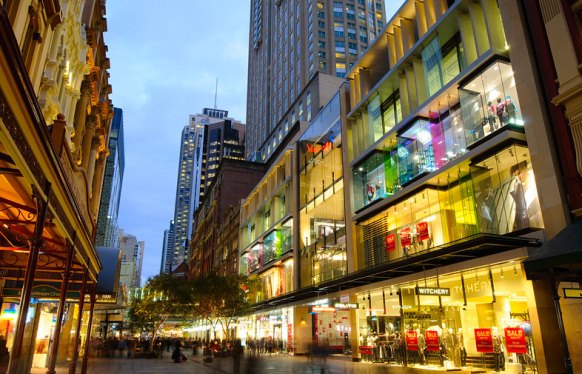It has been a testing year for Australian Retailers with some of our best-known brands not making it through 2016. The importance of understanding the market, listening to consumers, and getting the pricing right is more crucial now than ever before with so many competitors. An interesting read from news.com.au that we thought we would share;
First it was Dick Smith Electronics, then the Woolworths-owned Masters home improvement chain that went under. Now, thousands more workers will be jobless at Christmas after a fresh slew of corporate collapses rounded out 2016.
Payless Shoes this week announced plans to close its doors by the end of February, hot on the heels of Howards Storage World’s demise, and that of children’s fashion label Pumpkin Patch.
While Treasurer Scott Morrison seized on the latest bad news to bolster the Coalition’s tax reform agenda, market watchers say there is far more that needs to be done.
Retail analyst Barry Urquhart of Marketing Focus said neither corporate leaders nor government had acknowledged what he called “an attitudinal recession” that was restraining businesses.
While the nation was yet to tip into an official recession — despite having just marked its worst quarterly performance since the global financial crisis — Australians remained apprehensive about their futures, he said.
And any business that failed to respond to this by recapturing the public imagination with a compelling, value-driven offering would simply fall by the wayside.
WHAT’S WRONG WITH THIS RUBBISH BIN
Dropping half a grand on a kitchen waste bin is the kind of decadent behaviour that most Australians can only dream of.
And while this gleaming, fingerprint-proof stainless steel contraption may be an OCD home maker’s dream, the $529 price tag perfectly illustrates why Howard’s Storage World has gone under.
“Designed for superior durability and strength with a solid steel platform pedal and step area,
it has the patented lid shox technology to ensure a smooth and silent operation,” the retailer’s website says.
“An invisible hinge allows the bin to fit flush against any wall for a great space-saving solution, while the integrated natural charcoal filters help keep garbage odours under control.”
A garbage receptacle this fancy may have seemed like a logical purchase when the pre-GFC mining boom was at its peak, but times have changed.
With multinational competitors like Ikea and Aldi offering similar products at a much lower price — albeit without all the bells and whistles — it’s no wonder the company struggled.
Visitors to the Howards Storage World’s Facebook page were unsurprised at the retailer’s collapse, saying its products were just too expensive.
“I have more and better things to spend my money on than a $129 shower bottles holder,” one shopper wrote.
Demand for its extensive range of kitchen storage containers will also have been hit by changing consumer habits, Mr Urquhart said.
“In the past, Australians did their grocery shopping once a week, cooked up a storm and put containers of food into the freezer,” he said.
“Today, 24.1 per cent go to the supermarket five times a week or more. It means that they don’t need containers; they buy what they need, cook, consume and dispose of it.”
‘A RACE TO THE BOTTOM’
Payless Shoes opened its first store in Sydney in 1980, and is one of Australia’s biggest independent shoe retailers.
But the company has been struggling for years, and was only saved from extinction in 2013 when its United States namesake Payless ShoeSource bought it out.
Since then it has continued bleeding cash, losing $10.2 million in 2014 and $10.8 million in 2015.
The private equity firms behind the acquisition finally pulled the plug last week, placing the discount chain into voluntary administration.
And the reason why? According to Mr Urquhart, it’s not rocket science.
In a mission statement on its website, Payless says it aims to be “the go-to shoe store that budget-conscious women can count on for value, quality and style, helping everyone look good every step of the way by offering a trend-right and comprehensive range of everyday and special-occasion shoes for every member of the family”.
But anyone who’s ever wandered into a Payless Shoes store knows that their designs are far from on trend, Mr Urquhart said.
“The whole concept of ‘pay less’ and their race to the bottom with discounting highlights the fact that consumers do not give you loyalty when the only thing that differentiates you is price,” he said.
“When you’re talking about fashion and shoes and clothing, you’re talking about personal branding and making a statement.”
And few contemporary Australians would want to be known as the person who scored a bargain at Payless Shoes, he said.
“If you cut to the chase everything is about branding. We’ve got a deficiency of brands that represent value, consistency and continuity.”
THE MAGIC FORMULA
Too expensive, too cheap; it’s easy for retailers to get it wrong in today’s market.
The key lay not just in price, but the combination of value, point of difference and innovation, Mr Urquhart said, with brands like Apple and Aldi were winning because they understood this magic formula.
“It is not necessarily about being the cheapest; Apple is not the cheapest, but people stand in line to get their products because they know it’s new, it’s upgraded all the time, it’s got the simplicity of design. They dont need to be cheaper than Android, they’re just there as a desirable situation.”
And Aldi was shaking up the grocery sector with its discount offering based on a slimmed-down product range and smaller profit margins, gobbling up 12.5 per cent of the $92 billion industry in the past 15 years.
Australians businesses should take their cue from these global innovators, Mr Urquhart advised.
“Consumers are saying, ‘tell me what’s, new, innovative creative and exciting’, and they can’t see it on the business landscape,” he said. “So people are saying ‘well, we’ll just reign in and have a little more of the same.
“There has been a lack of imagination, a decided lack or absence of new product. That is one of the reasons why this Christmas is going to be a very flat, uninteresting situation. It is relatively dull, boring, repetitive — and that is not the sort of thing that will capture the imagination or stimulate the emotion.”


